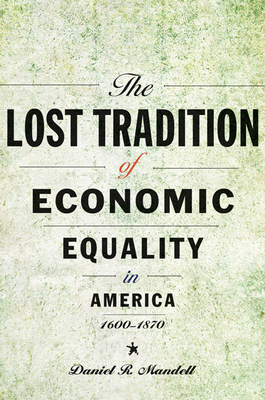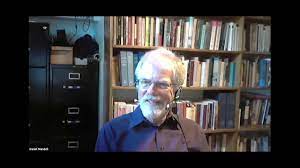

 Johns Hopkins University Press
Johns Hopkins University Press
The Lost Tradition of Economic Equality in America, 1600-1870


Key Metrics
- Daniel R Mandell
- Johns Hopkins University Press
- Hardcover
- 9781421437118
- 9.6 X 6.3 X 1 inches
- 1.3 pounds
- History > North American
- English
 Secure Transaction
Secure TransactionBook Description
The United States has some of the highest levels of both wealth and income inequality in the world. Although modern-day Americans are increasingly concerned about this growing inequality, many nonetheless believe that the country was founded on a person's right to acquire and control property. But in The Lost Tradition of Economic Equality in America, 1600-1870, Daniel R. Mandell argues that, in fact, the United States was originally deeply influenced by the belief that maintaining a rough or relative equality of wealth is essential to the cultivation of a successful republican government.
Mandell explores the origins and evolution of this ideal. He shows how, during the Revolutionary War, concerns about economic equality helped drive wage and price controls, while after its end Americans sought ways to maintain their beloved rough equality against the danger of individuals amassing excessive wealth. He also examines how, after 1800, this tradition was increasingly marginalized by the growth of the liberal ideal of individual property ownership without limits.
This politically evenhanded book takes a sweeping, detailed view of economic, social, and cultural developments up to the time of Reconstruction, when Congress refused to redistribute plantation lands to the former slaves who had worked it, insisting instead that they required only civil and political rights. Informing current discussions about the growing gap between rich and poor in the United States, The Lost Tradition of Economic Equality in America is surprising and enlightening.
Author Bio
Daniel Mandell has been on the Truman faculty since 1999, teaching early America, Native American history, and the history of American law. His book The Lost Tradition of Economic Equality in America, 1600-1870, will be published by Johns Hopkins University Press in spring 2020.
In 2018-2019, Prof. Mandell was Distinguished Research Fellow at the Kinder Institute on Constitutional Democracy at the University of Missouri, beginning a study of the conundrum between individual and collective rights in the U.S. highlighted by the evolution of Native American policies and laws.
In 2016, Mandell received the Distinguished Literary Achievement award from the Missouri Humanities Council in recognition of his many publications on Native Americans in New England between 1600 and 1900. King Philip’s War: Colonial Expansion, Native Resistance, and the End of Indian Sovereignty (Johns Hopkins University Press, 2010) was named an “Outstanding Academic Title” by the American Library Association’s Choice magazine. Tribe, Race, History: Native Americans in Southern New England, 1780-1880 (Johns Hopkins University Press, 2008), was given the inaugural Lawrence Levine Award in 2008 by the Organization of American Historians for the best book on American cultural history. He has also written King Philip’s War: The Conflict Over New England (Chelsea House Publications, 2007); the Northern and Western New England Treaties and Southern New England Treaties volumes (nos. 19 and 20) in the series Early American Indian Documents: Treaties and Laws (University Press of America, 2003); and Behind the Frontier: Indians in Eighteenth-Century Eastern Massachusetts (University of Nebraska Press, 1996). Prof. Mandell has also published various articles in edited collections, encyclopedias, and journals including the Journal of American History and the William and Mary Quarterly.
Mandell earned his doctorate and masters degrees in History from the University of Virginia, and a masters degree in Urban and Environmental Policy from Tufts University. He has received research fellowships from the National Endowment for the Humanities and various other agencies. He is an elected member of: the American Antiquarian Society, a scholarly society and research library over 200 years old that holds the largest collection of materials printed in North America; the Massachusetts Historical Society, the oldest historical research society in the United States; and the Colonial Society of Massachusetts.
Source: Truman University
Community reviews
Write a ReviewNo Community reviews



